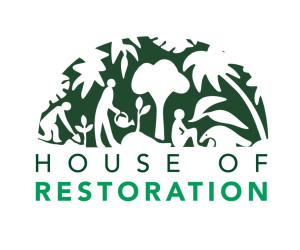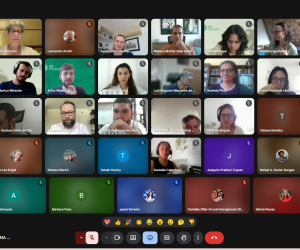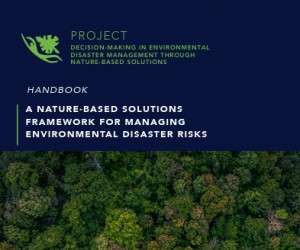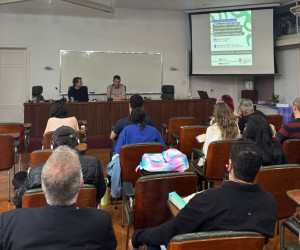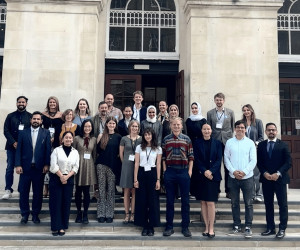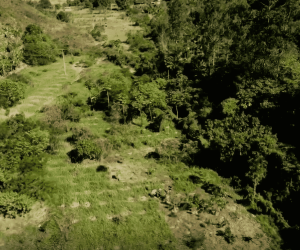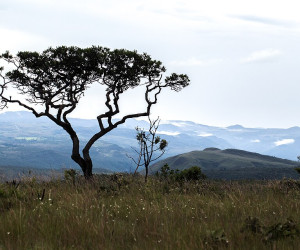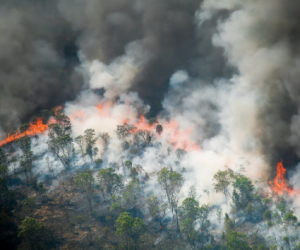Publications > Article
Nature-based Solutions: Brazil’s Decisive Play to Lead the Championship
By Bruna Pavani and Viviane Dib, International Institute for Sustainability (IIS)
Tackling climate change is like facing an unbeaten team away from home, in the rain and with the crowd against you. Greenhouse gas emissions continue to rise, and the impacts are already being felt both in Brazil and globally: more severe droughts, extreme rainfall, disrupted harvests and vulnerable cities.
But Brazil has a golden chance to turn the game around. With a solid natural defence—tropical forests, powerful rivers, mangroves, sandbanks, savannas, grasslands, and the world’s greatest biodiversity—the country can make a game-changing move: Nature-based Solutions. By restoring ecosystems and promoting sustainable land use, Brazil can become a global top scorer in the race for net zero emissions by 2050. Even better, this strategy also boosts the economy, protects biodiversity and improves quality of life. It’s a perfect goal—for both the climate and society.
First Half: Conservation is Our Unbreakable Defence
Before moving into attack, you need to close the back. In the climate match, keeping forests standing is like fielding a rock-solid defence that blocks the most dangerous goals against. Eliminating illegal deforestation alone could account for 51% of Brazil’s net-zero target—cutting an average of 446 million tonnes of CO₂e per year until 2050. If the strategy goes further and includes legal deforestation as well, this rises to 603 MtCO₂e/year—delivering 60% of the required emissions cut and putting Brazil in an even stronger position.
Moreover, conservation is one of the few defenders capable of blocking another formidable rival—biodiversity loss and the collapse of ecosystem services. It prevents species extinction, regulates local climate, protects water, soil and air, sustains livelihoods and ensures life on Earth can continue.
Second Half: Restoration Takes the Centre Forward Position
Now it’s time to attack with purpose. Brazil has set a target to restore 12 million hectares by 2030, but to truly change the score, we need greater ambition—placing restoration in front of goal as the team’s star striker. A bolder target, such as restoring 30% of each Brazilian biome (as proposed in Target 2 of the Kunming-Montreal Global Biodiversity Framework), could deliver a climate goal of 9,800 MtCO₂e in carbon sequestration.
With a well-placed pass—prioritising areas for restoration—the results can be even more impressive: benefiting over 11,000 species, expanding available habitat by up to 10% and improving landscape connectivity by 60%. Each hectare restored is a key assist for protecting life on Earth.
Extra Time: The Co-benefits That Win the Match
When the match gets tough, it’s the details that define the champion. Nature-based Solutions have proven to be the most complete tactic for tackling the climate crisis while winning on biodiversity too. And they go even further, setting up game-winning plays on multiple fronts:
Reducing environmental disaster risks: Protected or restored ecosystems act like elite goalkeepers, shielding the team from droughts, floods, heatwaves and even coastal erosion.
Fighting the water crisis: They play the role of midfielders, keeping the ball—or in this case, moisture—circulating across the atmospheric pitch through passes that become clouds, rain and vapour. These Solutions help regulate water flow, recharge aquifers and ensure water quality.
Bridging the gap between agriculture and nature: They boost agricultural productivity through pollination, improved soil quality and local climate regulation—supporting food security and tackling hunger (not just for goals).
Strengthening the socioeconomy: With green jobs, local income and sustainable value chains like agroforestry and ecotourism, these Solutions dribble past social inequality toward sustainable development. Regional stars include Amazonian açaí, Cerrado’s buriti and Atlantic Forest cacao—true players uniting nature, culture and livelihoods.
Final Score: The Game Must Change
Brazil needs a new game plan if it wants to play offensively and have a real shot at victory. We can no longer rely on improvisation. Serious flaws in environmental governance still undermine our defence and sabotage our attack. It’s time to enforce the Forest Code and stop scoring own goals. Investing in monitoring, transparency and public participation can be the sustainability VAR—ensuring the game follows the rules of climate and environmental justice.
The final whistle is still far off—but the clock is ticking, and the match is already under way. Switching tactics later may be too late.
The good news? We have everything it takes to win: a talented squad (cutting-edge technology), an experienced coach (skilled scientists), and a stadium full of supporters (an engaged society) ready to back the sustainability team. If Brazil invests wisely in Nature-based Solutions, we can not only turn the tide on climate, but also inspire the world with a model that combines resilience, environmental benefits and social justice.
Now is the time for Brazil to play beautifully. High pressure!

